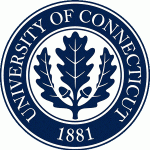Professor Jorge Agüero has published “The value of redistribution: Natural resources and the formation of human capital under weak institutions” in the Journal of Development Economics.
The paper is coauthored with Carlos Felipe Balcázar, Stanislao Maldonado and Hugo Ñopo.
Abstract: We exploit time and spatial variation generated by the commodities boom to measure the effect of natural resources on human capital formation in Peru, a country with low governance indicators. Combining test scores from over two million students and district-level administrative data of mining taxes redistributed to local governments, we find sizable effects on student learning from the redistribution. However, and consistent with recent political economy models, the relationship is non-monotonic. Based on these models, we identify improvements in school expenditure and infrastructure, together with increases in health outcomes of adults and children, as key mechanisms explaining the effect we find for redistribution. Policy implications for the avoidance of the natural resource curse are discussed.
The paper may be found online at:
https://www.sciencedirect.com/science/article/abs/pii/S0304387820301565

 Professor Jorge Agüero has published his paper “COVID-19 and The Rise of Intimate Partner Violence” in World Development
Professor Jorge Agüero has published his paper “COVID-19 and The Rise of Intimate Partner Violence” in World Development On October 30th, Economics undergraduate student Mary Vlamis presented her project ‘Can Inclusive Programs Reduce Racial and Gender Discriminations from the Labor Market?’ at the annual
On October 30th, Economics undergraduate student Mary Vlamis presented her project ‘Can Inclusive Programs Reduce Racial and Gender Discriminations from the Labor Market?’ at the annual  Jorge Agüero gave a keynote address at the 8th International Congress on Education at Ibagué, Colombia.
Jorge Agüero gave a keynote address at the 8th International Congress on Education at Ibagué, Colombia.